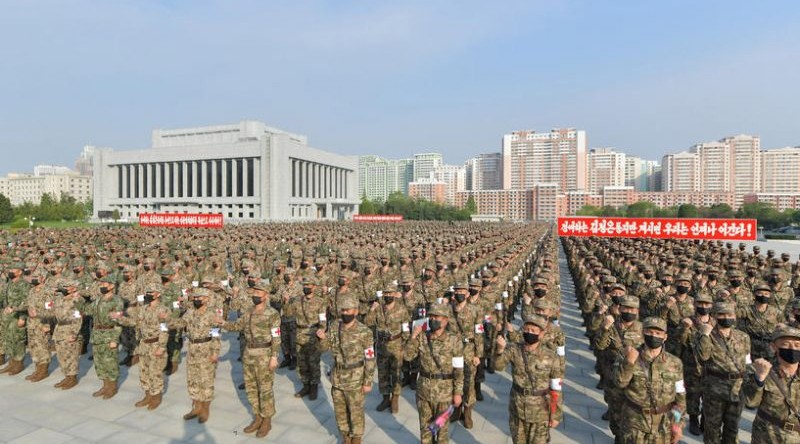North Korea's refusal to negotiate on nuke arms threatens Asia with domino effect

The legislative consolidation of North Korea's nuclear status may cause significant security changes in Northeast Asia, including the risk of a domino effect in which other countries decide to acquire nuclear weapons as well, North Korean security strategist and researcher at the Sejong Institute, Jae-Hung Chung, told TASS on Friday.
The expert said legalizing the right to use nuclear weapons in North Korea is of "great importance". It would seriously limit the possibility of further diplomatic negotiations on denuclearization, which the US, the Republic of Korea and Japan have insisted on. The expert sees two main scenarios in this situation.
·"First, a serious reconsideration of the current negotiating positions of Washington, Seoul and Tokyo, which offered economic aid and the lifting of sanctions in exchange for denuclearization. Such measures as the creation of a peace system on the Korean Peninsula and the withdrawal of US troops from the Republic of Korea may be required," Jae-Hung Chung said. There is a 28,000 US military contingent stationed in the south of the Korean Peninsula, he added.·
"Second, unless there is a fundamental change in the negotiating positions, the Republic of Korea will have to think about the return of US tactical nuclear weapons or its own nuclear weapons," the expert said. According to him, if Seoul or Tokyo decide to acquire their own nuclear weapons, this will cause a domino effect in Northeast Asia and raise questions about the nonproliferation regime in the region.·
Given the growing rivalry between China and the United States, such actions by US allies would spur the development of security cooperation between North Korea, China and Russia. According to the expert, Pyongyang may also respond to the strengthening of trilateral cooperation between Washington, Seoul and Tokyo.·
The North Korean Supreme People's Assembly during its regular session on September 7 to 8 passed a new law on nuclear forces, which fixed the concept of a preventive nuclear strike. Speaking to the National People's Assembly on Thursday on the occasion, North Korean leader Kim Jong-un said that the people's republic would never give up nuclear weapons because of the US threat, and the new law made denuclearization talks impossible.
